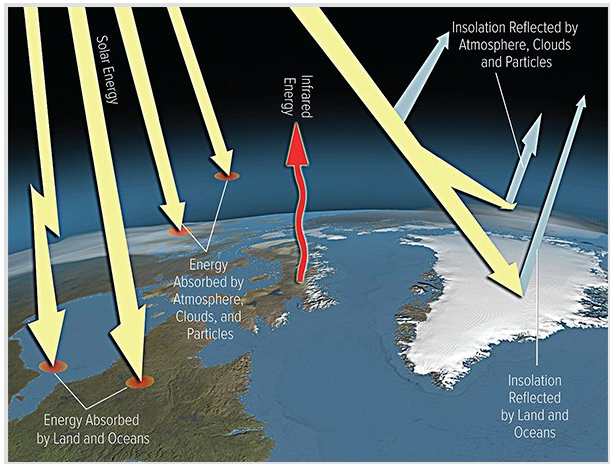The UV Index can tell you:
A) the approximate time it will take you to sunburn on a given day, based on your skin type.
B) the relative change in UV production during a severe solar wind event.
C) the expected rate of skin cancer occurrence in a given city.
D) what percent of Earth's radiation is emitted as UV radiation.
A
You might also like to view...
Pictured here is a model of how the atmosphere is heated. Which arrow represents heating of the earth's atmosphere by longwave radiation?

A) Insolation reflected by land
B) Insolation reflected by clouds
C) Energy absorbed by land
D) Infrared energy emitted by land
Judge the following sentence according to the criteria given below: When studying alternating sandstone and shale beds prior to 1900,
sedimentologists interpreted that the sediment did not quietly settle out to the seafloor because they saw scoured bases on the graded beds and current-formed cross-beds. A) The assertion and the reason are both correct, and the reason is valid. B) The assertion and the reason are both correct, but the reason is invalid. C) The assertion is correct but the reason is incorrect. D) The assertion is incorrect but the reason is correct. E) Both the assertion and the reason are incorrect.
Which of the following was the cause of the debris flow in Oso, Washington, in March 2014?
A) Volcanic eruptions generated a lahar. B) A stream at the base of a slope eroded the toe of the slope away. C) Heavy rains saturated the surface materials on the slope. D) The slope was oversteepened during construction.
Which of the following is an artificial coastal feature?
A) Baymouth bar B) Jetty C) Spit D) Tombolo